Voting rights pioneers honored at Alabama state archives
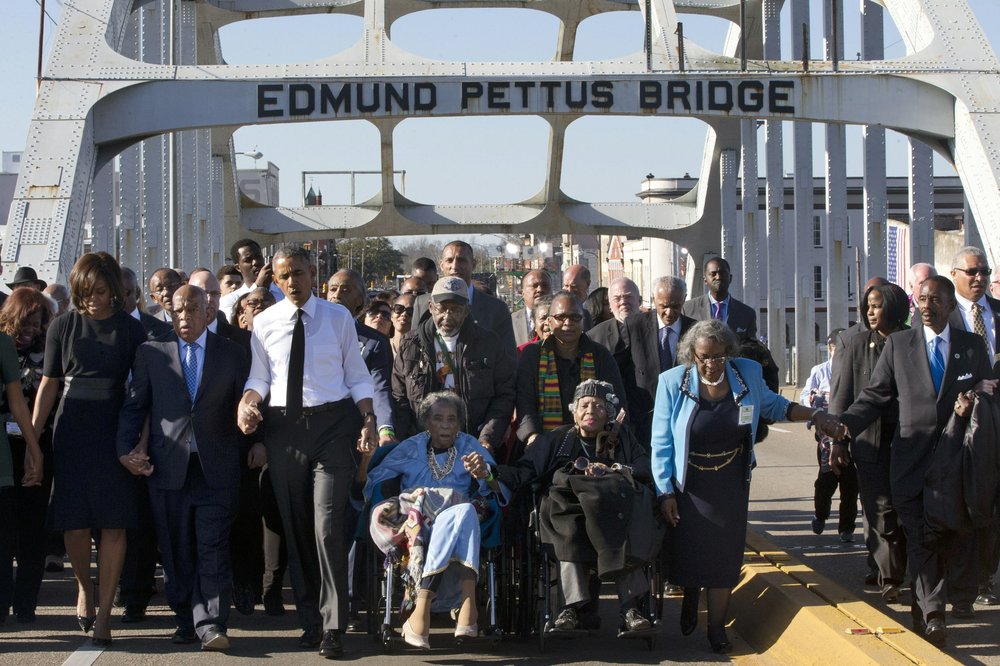
Two pioneers for voting rights have become the first women represented in the Statuary Hall of notable Alabamians at the Alabama Department of Archives and History. The bronze bust likenesses of Amelia Boynton Robinson, a civil rights pioneer, and Pattie Ruffner Jacobs, the state’s leading suffrage activist in the early twentieth century, were unveiled Monday. Alabama Gov. Kay Ivey said the two trailblazers worked to bring about “real and lasting change both in Alabama and in the nation. “The first two women added to the Statuary Hall are both known for lifelong efforts to extend the right to vote to all Alabamians,” Ivey said at the unveiling ceremony. The statues are located at one of the entrances to the state archives and are passed by visitors, researchers and hundreds of students on field trips each year. A longtime civil rights activist, Boynton Robinson is perhaps best known as a leader in the movement in Selma. She was among those beaten during the march across the Edmund Pettus Bridge in Selma in March 1965 that became known as “Bloody Sunday.” State troopers teargassed and clubbed marchers. A newspaper photo featuring an unconscious Boynton Robinson drew wide attention to the movement. When the Voting Rights Act was signed into law on Aug. 6, 1965, President Lyndon Johnson invited Robinson to attend the signing as a guest of honor. Boynton Robinson’s granddaughter said it was fulfilling to see her grandmother’s legacy honored. But Carver Boyington said she also hopes visitors remember her grandmothers’ urging to young people to “get off my shoulders” and carry on the work. “What she means by that is she wants us all to move forward in our own activism,” she said. Ruffner was the founder of the Alabama Equal Suffrage Association and a board member for Susan B. Anthony’s National American Woman Suffrage Association. “These additions to our statuary collection represent a step forward in the Archives’ commitment to deliver an inclusive presentation of Alabama’s history,” said Department of Archives and History Director Steve Murray in a press release. “Moreover, the women they honor serve as wonderful models of traits we hope to see embodied by our young people — persistence, courage, and a commitment to justice under the law.” The new works of art were sculpted by Alabama artist Clydetta Fulmer and cast at the Fairhope Foundry.
Bruce Boynton, who inspired 1961 Freedom Rides, dies at 83
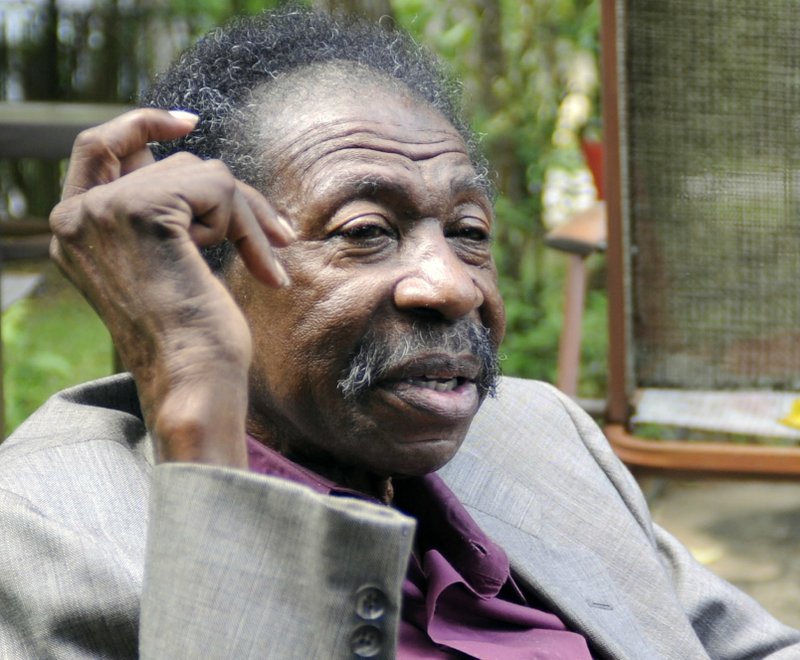
Bruce Carver Boynton, a civil rights pioneer from Alabama who inspired the landmark “Freedom Rides” of 1961, has died. He was 83. Former Alabama state Sen. Hank Sanders, a friend of Boynton’s, confirmed his passing Friday. Boynton was arrested 60 years ago for entering the white part of a racially segregated bus station in Virginia and launching a chain reaction that ultimately helped to bring about the abolition of Jim Crow laws in the South. Boynton contested his conviction, and his appeal resulted in a U.S. Supreme Court decision that prohibited bus station segregation and helped inspire the “Freedom Rides.” Despite his pivotal role, Boynton was not as well known as other civil rights figures. Yet both his mother and father were early civil rights activists. His mother, Amelia Boynton Robinson, was savagely beaten while demonstrating for voting rights in 1965 and was honored by then-President Barack Obama 50 years later. “He did something that very few people would have the courage to do. He said no,” U.S. District Judge Myron Thompson said of Boynton in 2018. “To me, he’s on a par with Rosa Parks,” the Black woman who refused to give up her bus seat to a white man. Boynton described his arrest in a 2018 interview with The Associated Press. Boynton was attending law school at Howard University in Washington, D.C. when he boarded a bus bound for Alabama in 1958. Public facilities including bus stations were separated by race across the South at the time, despite federal laws banning segregation in interstate travel. The bus pulled into a station in Richmond, Virginia, for a break, and Boynton went inside to eat. Seeing that the part of the restaurant meant for blacks had water on the floor and looked “very unsanitary,” Boynton said he sat down in the “clinically clean” white area. He told the waitress he would have a cheeseburger and tea. “She left and came back with the manager. The manager poked his finger in my face and said … move,’” using a racial slur, Boynton recalled in the interview. “And I knew that I would not move, and I refused to, and that was the case.” Convicted of trespassing, Boynton appealed and his case wound up before the Supreme Court. Thurgood Marshall, then the nation’s leading civil rights attorney and later on to become the first Black Supreme Court justice, was his counsel. Boynton contested his conviction and the Supreme Court ruled in 1960 that federal discrimination prohibitions barring segregation on interstate buses also applied to bus stations and other facilities linked to interstate travel. The next year, dozens of black and white students set out on buses to travel the South and test whether the ruling in the case, Bruce Boynton v. Virginia, was being followed. The “Freedom Riders” were arrested or attacked in Alabama, Mississippi, and South Carolina, and a bus was burned. Then-President John F. Kennedy ordered stricter enforcement of federal anti-discrimination laws. “He was a pioneer,” said Sanders. “All of the Freedom Rides sprung from this particular action.” Sanders said Boynton paid a price for what he did, and initially wasn’t able to get a law license in Alabama. He spent most of his career as a civil rights attorney before retirement. Thompson said in 2018 that Boynton’s life “is a teaching lesson for all of us about how we can make a difference.” “All he wanted was a cheeseburger, and he changed the course of history.” Republished with the permission of the Associated Press.
John Lewis’ legacy shaped in 1965 on Alabama’s ‘Bloody Sunday’
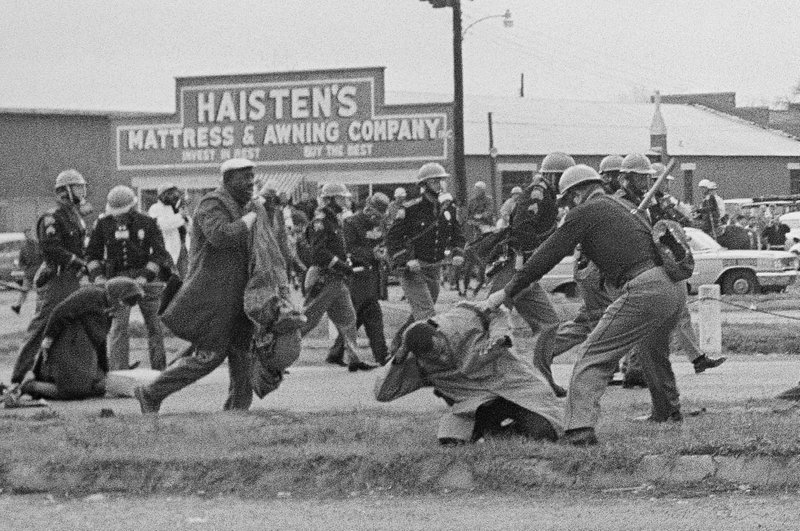
Rather than stopping, Lewis put another foot forward.
House passes Terri Sewell’s bill to rename Selma post office after civil rights legend Amelia Boynton Robinson
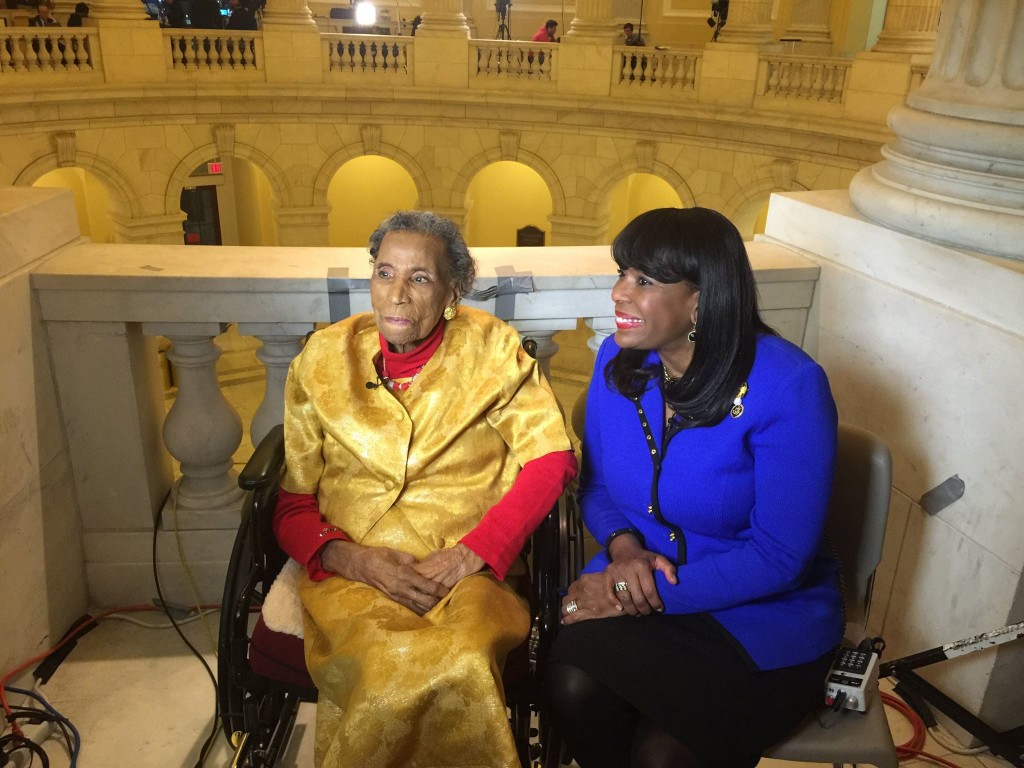
The U.S. House of Representatives passed legislation Tuesday to officially name a Selma USPS post office after the late civil rights legend Amelia Boynton Robinson. H.R. 4777, a bill authored by Alabama 7th District U.S. Rep. Terri Sewell, next goes to the Senate for approval. A time frame for passage there is uncertain. The bill would designate the post office at 1301 Alabama Avenue in Selma as the “Amelia Boynton Robinson Post Office Building.” Boynton Robinson was a voting rights pioneer and a leader in the American Voting Rights Movement in Selma. She was among those beaten during the voting rights march across Selma’s Edmund Pettus bridge in March 1965 — a day that became known as “Bloody Sunday.” In 1990 she was awarded the Martin Luther King Jr. Medal of Freedom. Boynton Robinson died Aug. 26, 2015, at 104 years old. “I was delighted that the House of Representatives passed my legislation to name the Selma Post Office after Voting Rights Activist Amelia Boynton Robinson,” said the bill’s sponsor Rep. Sewell. “Mrs. Boynton Robinson was known as the matriarch of the voting rights movement. Her life and legacy epitomized strength, resilience, perseverance and courage — the same characteristics that embody the City of Selma where she made such a significant impact.” Sewell continued, “A trailblazer, Amelia Boynton Robinson also made history in 1964 as the first black woman to run for Congress from the State of Alabama. I know the journey I now take as Alabama’s first black congresswoman was only made possible because of her courage, tenacity and faith. As a daughter of Selma, I am honored to sponsor this legislation, and I can think of no more deserving person to name the Selma post office after than Amelia Boynton Robinson. She truly represents the heart, spirit and essence of Selma.” Mayor George Evans of Selma was also pleased to see the bill pass the House, stating, “I am delighted that Congresswoman Sewell’s bill passed with such overwhelming support. Amelia Boynton Robinson put herself and her family’s lives at risk and this is a long overdue honor and I am in support of naming the post office after her.”
Alabama reacts to passing of civil rights legend Amelia Boynton Robinson
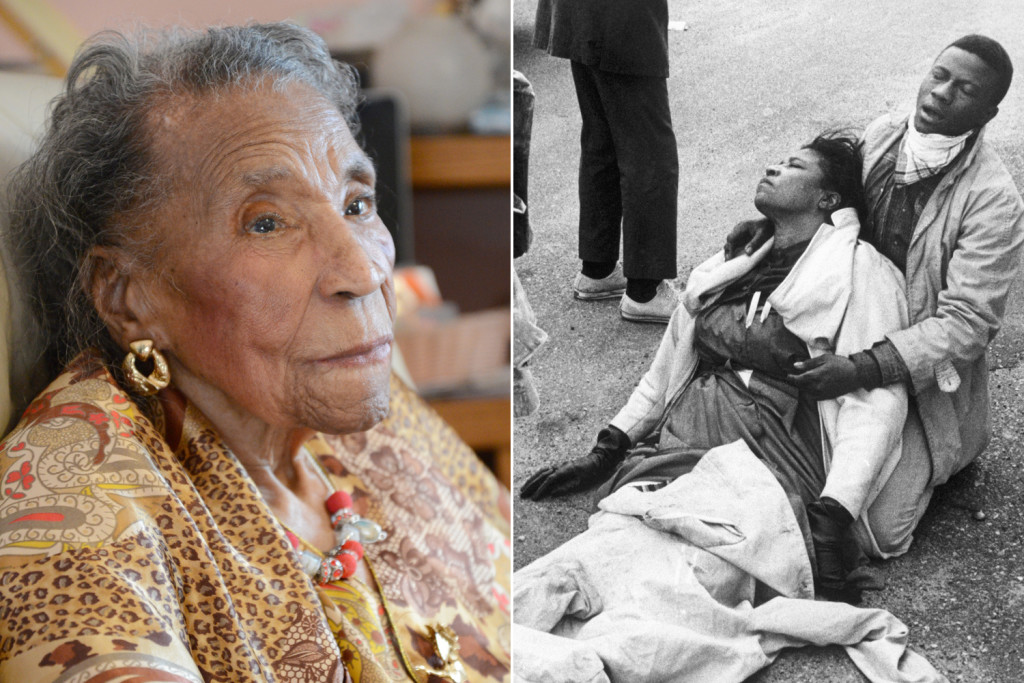
Civil rights legend Amelia Boynton Robinson passed away Wednesday. She celebrated her 104 birthday on August 18, though those closest to her insist she was actually 110. Boynton Robinson suffered a stroke in July and had been hospitalized in Montgomery, Alabama. Relatives say, she died early Wednesday. 2015 was a year of celebration for Boynton Robinson, as her incredible story was retold to America through the blockbuster “Selma” which portrayed the 1965 demonstrations that led to the passage of the 1965 Voting Rights Act. Below are some of the reactions from politicians across the state: Gov. Robert Bentley: I am saddened to hear about the death of Amelia Boynton Robinson. She was a pioneer of the Civil Rights Movement who began working to secure voting rights for African Americans in Selma in the 1930s. Her passion for equality and her spirit to preserve human rights were immense and unwavering. Amelia was a great Alabamian. She was a true pioneer and her life should serve as an example to future generations of leaders. U.S. Rep. Bradley Byrne (AL-01): Rebecca and I were saddened to learn that Amelia Boynton Robinson had passed away, but there is little doubt her contributions to our state and the nation will live on for generations. She will forever be remembered for her role in organizing the Selma to Montgomery march in 1965 and her steadfast courage in defense of equal rights for all Americans. Please join me in saying a prayer for Amelia Boynton Robinson’s family and friends during this difficult time. U.S. Rep. Terri Sewell (AL-07): Today while we mourn the passing of Amelia Boynton Robinson, we must also celebrate the life and legacy of a real American treasure. Mrs. Boynton Robinson personified the essence of an American hero through her courageous and passionate fight for the fundamental right to vote for every citizen in this nation. I will always cherish the time we spent together when she honored me as my special guest for the State of the Union on January 20, 2015. I am grateful for the memories of her greeting President Obama that night and I am so blessed to call her a beloved mentor and friend. Mrs. Amelia Boynton Robinson will not only be remembered for her invaluable contributions as a matriarch of the voting rights movement but she was also the first black woman from the State of Alabama to run for Congress. Without her courageous campaign for the 7th Congressional District, I know that my election to this seat in 2010 would not have been possible. Her sacrifices paved the way for me to walk the halls of Congress and I will carry my love and admiration for her in my heart each and every day. As she reminded us in life, there is still much work to be done for this nation to live up to its ideals of equality and justice for all. Let us be inspired by the extraordinary life of Mrs. Amelia Boynton Robinson to keep striving and working towards a more perfect union. May we honor her by continuing her life’s work.


